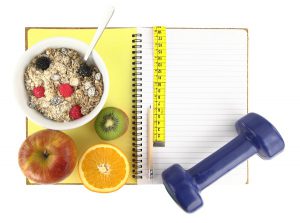
 How to control Thyroid?
How to control Thyroid?
A fit and lean body, like those athletes, is certainly everyone’s dream. The gym seems to be the only solution for losing and gaining weight too. But, wait for a second, is there anything else that might be interfering? The butterfly-shaped gland, the Thyroid is responsible for the digestion of food, growth, as well as development. Here the question arises,
Yes! We can control Thyroid. How? Let’s understand.
An over-active Thyroid causes Hyperthyroidism as a result, a person unintentionally loses weight. Alternatively, an under-active Thyroid causes Hypothyroidism. As a result, a person observes a sudden increase in weight. Both instances affect an individual’s health and overall well-being as they lead to hair loss, muscle weakness, memory loss and leave you feeling tired all day.
Managing Thyroid can become easier if you are diagnosed early. For instance, early detection helps in better treatment by keeping your Thyroid under check. Differentiating between excess and scarcity of thyroid hormones can help you plan your diet as well as include exercises to down-regulate or stimulate your Thyroid gland. In both cases, proper nutrition is a necessity.
How to Control Thyroid?
Undoubtedly the answer is simple. Firstly focus on your diet and secondly on exercise. Here, the nutrition-80% exercise-20% rule is to be followed.

Nutrition demands higher importance as what you eat defines how much your body needs to digest.
Nutrition:
How to Control Thyroid in Hypothyroidism–
Food to avoid or consume in limited quantity:
- Processed food: Ready meals, Bread, Cakes, Cheese, etc.
- Goitrogens: Soy-rich products (Tofu, etc.); Beverages (Green tea, Coffee, Alcohol); Fruits (Strawberries, Peaches, etc.)
- Millet (Cereal or grain crop)
- Supplements: Only if advised by a Doctor (Iodine, Selenium)
Food to consume:
- Animal products: Eggs, Fish, Seaweed, Lean meat, Chicken, etc.
- Fruits and vegetables
- Dairy products
- Beverages: Non-caffeinated
- Gluten-free products


How to Control Thyroid in Hyperthyroidism-
Food to avoid or consume in limited quantity:
- Iodine-rich food: Seafood, agar-agar, Dairy products, etc.
- Animal products: Eggs, Fish, Lean meat, Chicken, etc.
- Gluten-rich products
- Soy-rich products
- Caffeinated beverages
Food to consume:
- Cruciferous vegetables
- Low-iodine products
- Fruits
- Nuts
- Food products rich in Vitamin D and Minerals (Iron, Selenium, Zinc, Calcium)
- Spices: Pepper (black), Turmeric, Green chilies
How to Control Thyroid with Exercise?
Besides consuming a properly balanced diet, it is essential to be physically active. Moderate aerobic and cardiovascular exercises have proven to improve as well as maintain proper Thyroid functioning. But, a sole focus on exercises may lead to complications. The benefits of being physically active not only help in reducing stress and depression but show improvement in energy levels and muscle mass, and more.
 Balancing between nutrition as well as exercise is like a puzzle where regular preventive checkups serve as hints. Meanwhile, Thyrocare helps you in testing your Thyroid function with a variety of preventive as well as diagnostic tests.
Balancing between nutrition as well as exercise is like a puzzle where regular preventive checkups serve as hints. Meanwhile, Thyrocare helps you in testing your Thyroid function with a variety of preventive as well as diagnostic tests.